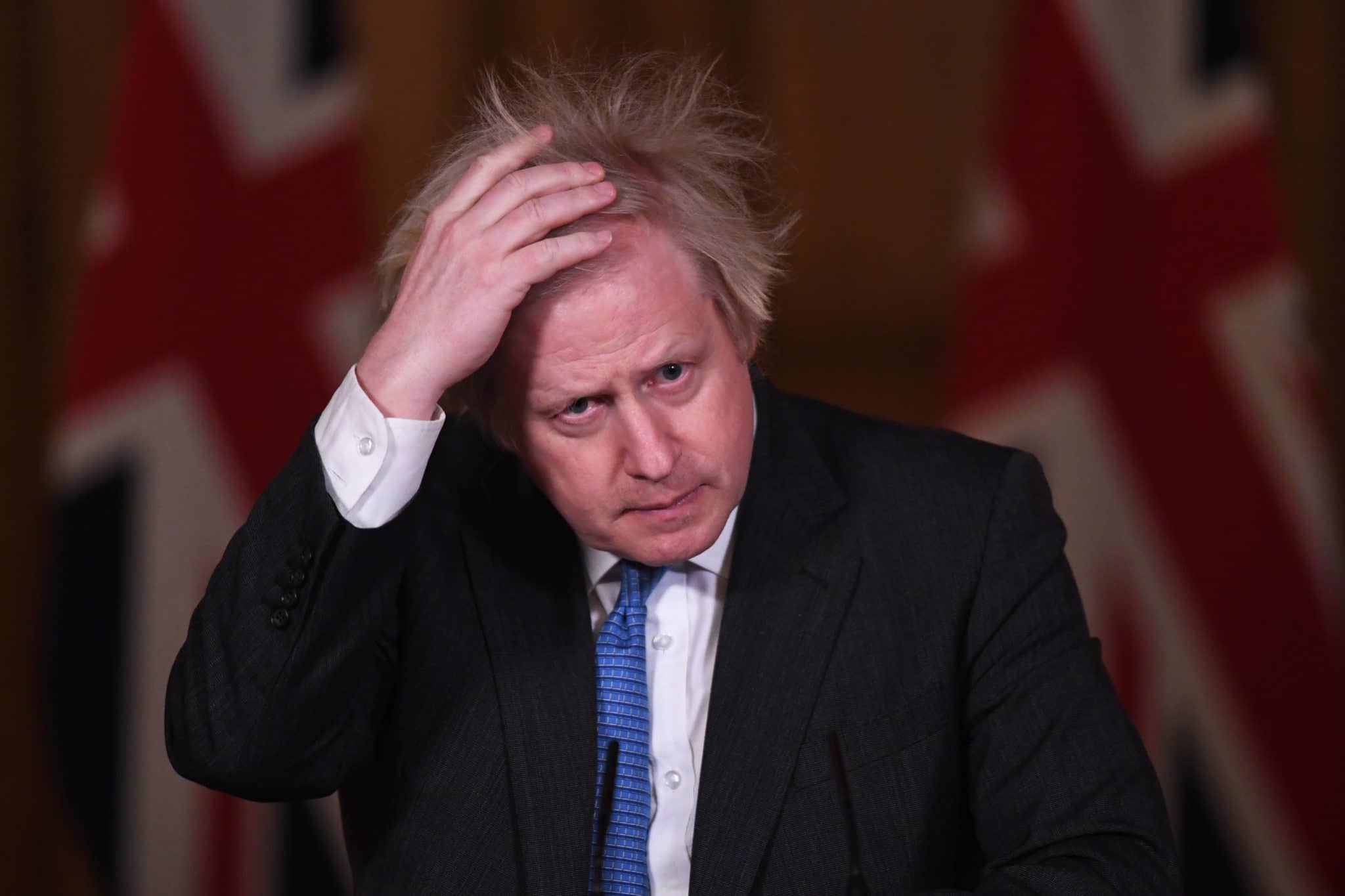Boris Johnson at a COVID-19 media briefing in Downing Street. (Stefan Rousseau – WPA Pool/Getty Images)
The UK government has cut funding to the UN agency fighting HIV and AIDS by more than 80 per cent in a “shameful” and “maddeningly short-sighted” move.
UNAIDS said the UK government had informed the organisation that it will receive £2.5 million in funding for 2021. It received £15 million from the UK in 2020. So this represents a major cut of £12.5 million – more than 80 per cent – in funding to an organisation that helps fight HIV and AIDS worldwide.
The drop translates to a reduction of more than £4 billion in the overseas aid budget, Sky News reported.
According to Sky News, the government said the “seismic impact” of COVID-19 meant it had to make “tough but necessary” decisions – including cutting funding for crucial HIV treatment.
In an interview on BBC Radio 4 on Friday (30 April), Lord Norman Fowler, vice-chair on the All-Party Parliamentary Group on HIV and AIDS and ambassador for UNAIDS, condemned the funding cuts. He explained there is “always a temptation in this country” to believe that “AIDS has gone away”, but it hasn’t.
Lord Fowler also mentioned that Russell T Davies’ seminal AIDS drama It’s a Sin had an impact in highlighting to a modern audience the continued need to help in the HIV response.
He said he would be pushing the UK government to rethink its decision to cut the HIV and AIDS funding budget, saying there is a “great mountain to climb” in fighting the epidemic. Lord Fowler said: “I think it is a bad decision, and I think it has led to all kinds of unforeseen consequences.”
Lord Fowler on @BBCRadio4 condemning the proposed 80% cut in funding to @UNAIDS.
“I think it is a bad decision, it has led to all kinds of unforeseen consequences”
“These kind of decisions harm our international reputation, apart from anything else.” pic.twitter.com/WeK5j0GNJV
— APPG on HIV and AIDS (@APPG_HIV_AIDS) April 30, 2021
UNAIDS said the UK government had said the decision to cut its aid “does not reflect a diminished commitment to UNAIDS or the HIV response”. The UN programme added it will continue to work with the UK to “sustain the hard-won gains in the fight against HIV and to end AIDS”.
The funding cuts have triggered an outcry among campaigners and activists, especially in the year when the UK is set to take on the leading role for this year’s G7 Summit in June.
Saoirse Fitzpatrick, advocacy manager at STOPAIDS, said in a statement that these “shameful” cuts to HIV funding risk “abandoning the UK’s leadership and influence” in the HIV response at a “pivotal moment”.
“These cuts will hit the most marginalised communities around the world hardest,” Fitzpatrick said. “It threatens to undo decades of progress made in the HIV response that UK aid has made possible.”
She added the UK government must urgently “change track and protect its funding for UNAIDS” and other organisations working in the HIV response as “690,000 people dying from an AIDS-related illness each year”.
Christine Stegling, executive director at Frontline AIDS, said it was clear the UK government had not learned “one of the most basic lessons” from COVID-19 – “disinvesting in public health only stores up problems for the future”.
She argued that there is a “very real threat” that the “hard-won progress on HIV and AIDS” treatment could go “into reverse” for the “first time in decades”. Stegling added these cuts by the UK government “will actively increase that risk”.
“The UK government might also reflect on the fact that HIV, much like COVID-19, doesn’t recognise borders,” Stegling said. “An increase in rates in any country should and will eventually become an issue for every country. A maddeningly short-sighted decision.”
